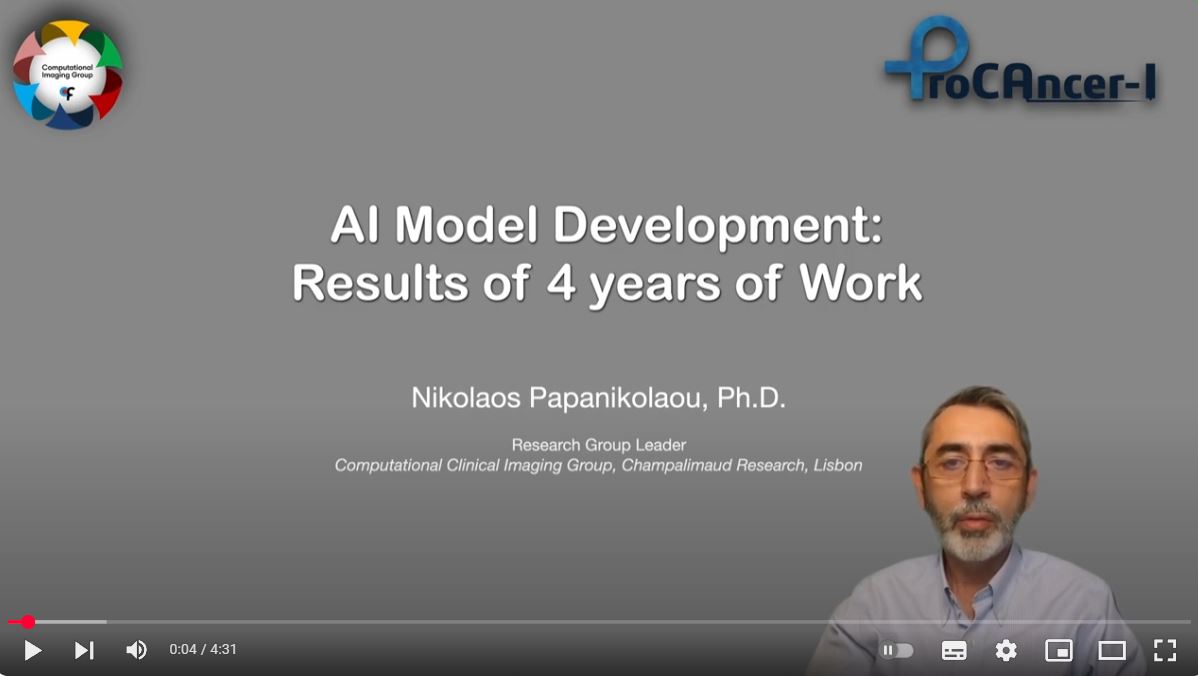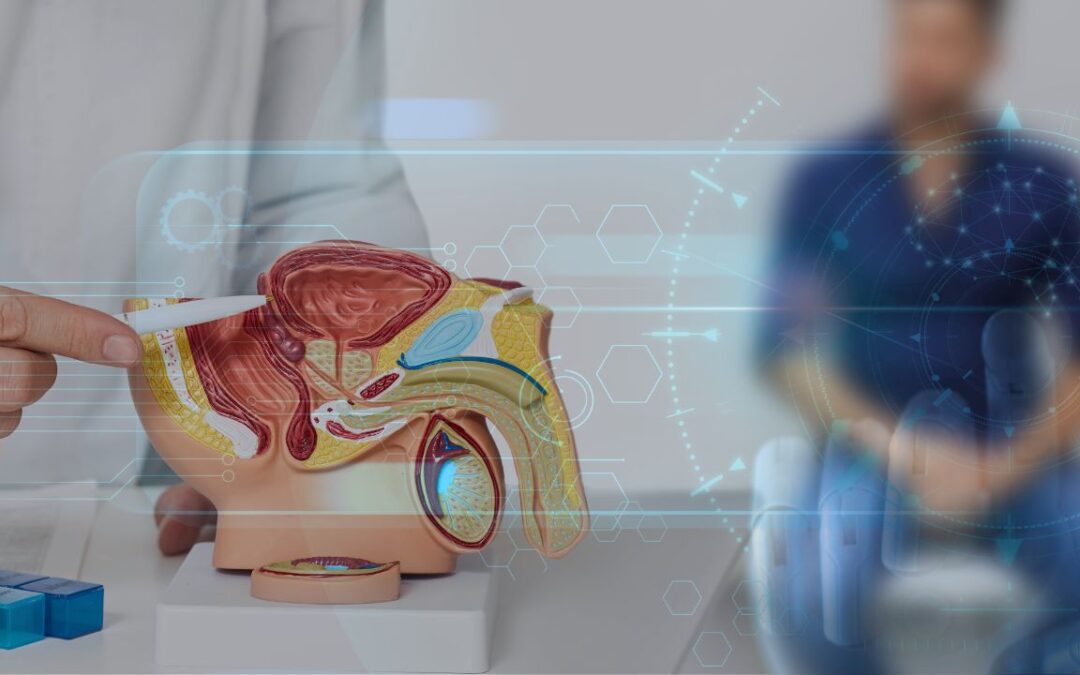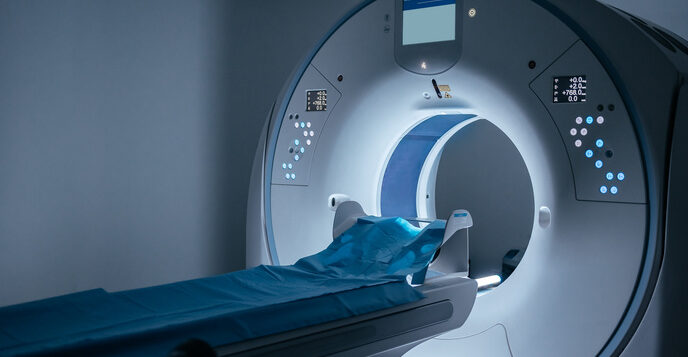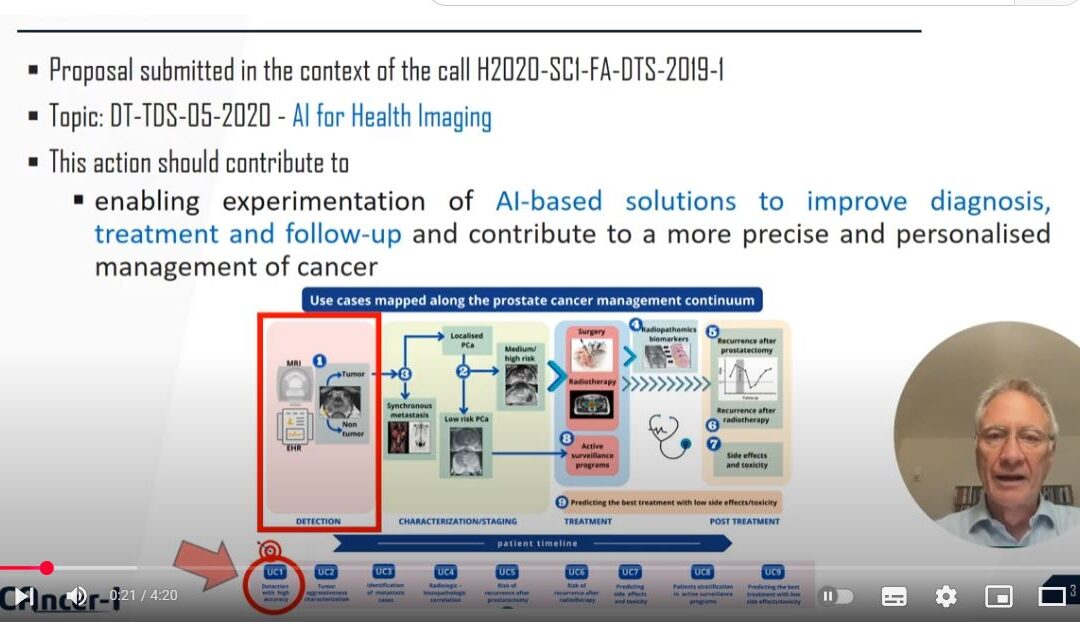ProCAncer-I results | Prof. Papanikolaou on Prostanet including PI-QUAL Study and tools
Since its inception, the ProCAncer-I project has aimed to establish a robust, ethically compliant AI platform—ProstateNet—to revolutionize prostate cancer (PCa) care through data-driven decision support. The ProCAncer-I project has achieved significant advancements beyond the current state of the art in AI-driven medical imaging and prostate cancer (PCa) management. At its core, the project created ProstateNet, a dataset of over 1.5 million mpMRI images by far the largest PCa imaging dataset in Europe—coupled with harmonized clinical data. This scale and standardization enable the training and validation of generalizable AI models with unprecedented robustness and transparency. Model validation was a core focus. Deep learning and radiomics models were rigorously tested on internal and external datasets. Clinical validation of detection and segmentation models in a multicenter radiologist reader study demonstrated improved diagnostic performance and high user acceptance (System Usability Score ~72). Federated learning experiments confirmed the feasibility of decentralized, privacy-preserving model training.
Watch it here:





